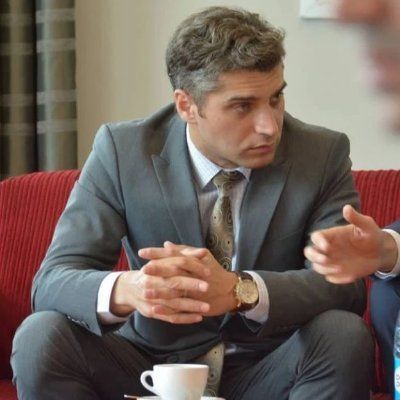Baku Conference: New chapter in the fight against colonial legacies [OPINION]
![Baku Conference: New chapter in the fight against colonial legacies [OPINION]](https://www.azernews.az/media/2025/03/30/67e7a1ddf0e9b67e7a1ddf0e9c174323350167e7a1ddf0e9867e7a1ddf0e99.jpg)
In recent years, the scars left by colonialism have continued to shape political, cultural, and social landscapes around the world. On March 29, the Baku Initiative Group (BIG) hosted an international conference on the theme of "Colonialism: Erasure of Religious and National Identity," bringing together leaders of independence movements, political prisoners’ families, and decolonization experts from territories long under French and Dutch colonial rule. Held in Azerbaijan’s capital, this gathering was more than just an academic discussion—it represented a poignant reflection on the consequences of colonialism and the ongoing struggle for justice, self-determination, and the preservation of cultural identity.
The conference addressed the destructive legacies of colonialism, focusing on the systematic erasure of national and religious identities. This was a process by which colonizers imposed their languages, customs, and beliefs while suppressing those of the indigenous populations. In colonies like Guadeloupe, New Caledonia, and French Polynesia, colonial powers enacted policies that included forced name changes, bans on native languages, and the deliberate destruction of cultural practices. The conference participants—many of whom are descendants of colonized peoples—shared stories of how their identities had been altered or erased in the name of imperial control. Their histories have been largely neglected in the broader global discourse, and this conference aimed to bring those narratives to the forefront.
Perhaps most striking were the personal testimonies of the families of political prisoners from New Caledonia and other territories. For many of these families, the arrest and imprisonment of their loved ones were not the result of criminal activity but were politically motivated acts of repression. The French government, they argued, sought to suppress their movements for self-determination and independence. This ongoing cycle of imprisonment is not isolated but part of a broader pattern in which colonial powers continue to use legal and extrajudicial methods to quash opposition to their rule. The very notion of sovereignty and freedom is still being fought for in these territories, with the French government continuing to silence those who challenge the status quo.
One particularly poignant aspect of the conference was the emphasis on the treatment of political prisoners. These individuals, who are often viewed as martyrs in their struggle for national liberation, serve as symbols of resistance. However, their imprisonment—often under inhumane conditions—raises crucial questions about human rights violations in the post-colonial era. As Abbas Abbasov, Executive Director of the Baku Initiative Group, pointed out, international pressure must be brought to bear on the French government to ensure the fair treatment and immediate release of these prisoners. The question is not merely one of individual freedom but of justice for entire populations who continue to face discrimination, oppression, and violence in their struggle for self-determination.
The conference also highlighted the importance of reparations and the need to address the long-lasting effects of colonialism. These discussions were not just about historical grievances but about real, concrete actions to correct the injustices of the past. For too long, the voices of those impacted by colonialism—whether through economic exploitation, cultural erasure, or political oppression—have been ignored or silenced. Reparations, both material and symbolic, are essential in acknowledging the harms done and beginning the process of healing.
One significant takeaway from the conference was Azerbaijan's growing role in the global decolonization movement. Despite being a relatively young nation, Azerbaijan has positioned itself as a strong advocate for global self-determination and decolonization. Through events like this conference, the country is not only raising awareness of the ongoing struggles faced by colonized peoples but is also actively engaging in efforts to mediate between colonial powers and their former colonies, offering a platform for dialogue and negotiation. The Baku Initiative Group’s commitment to supporting political prisoners and facilitating discussions around decolonization is a commendable step in the right direction.
As the conference concluded, the message was clear: colonialism may have ended on paper, but its effects continue to reverberate through the lives of many around the world. The fight for recognition, reparations, and the preservation of national and religious identity is ongoing. The voices heard in Baku on March 29 were a powerful reminder that colonialism’s legacy is not a thing of the past—it is a present and living reality for millions of people still fighting for their freedom. In this context, Azerbaijan’s leadership in advocating for decolonization should be seen as a vital step towards rectifying historical wrongs and ensuring that the fight for justice remains a global priority.
Here we are to serve you with news right now. It does not cost much, but worth your attention.
Choose to support open, independent, quality journalism and subscribe on a monthly basis.
By subscribing to our online newspaper, you can have full digital access to all news, analysis, and much more.
You can also follow AzerNEWS on Twitter @AzerNewsAz or Facebook @AzerNewsNewspaper
Thank you!

